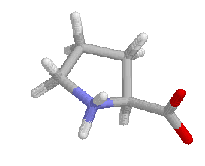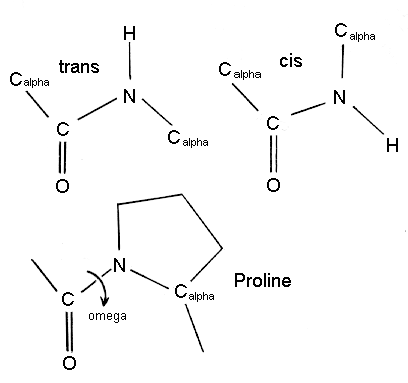

Over 5% of proline residues have a cis X-pro peptide bond. This compares to less then 1% for peptide bonds overall. cis-trans isomerization has been shown to be the rate limiting step for the folding of many proteins such as collagen, carbonic anhydrase, ribonuclease and others. The estimated energy barrier to isomerization is 20kcal/mol. The isomerization is catalyzed by proteins known as prolyl isomerases or cyclophilins, a large family of proteins. There has been much study of prolyl isomerases for their role in protein folding and involvment in the heat shock response. Inhibition of cyclophilins by cyclosporins and FK506 leads to immunosuppression and is usefull in organ transplantation. Cyclophilins and prolyl isomerases are also invovled in the pathogenisis of HIV and some bacteria .

Diagram of cis-trans peptide bonds
from section 3 of PPS96